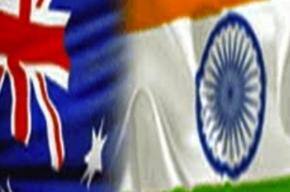1947: In two distant lands

On that momentous Friday in 1947, New York World Telegram wrote “Two Nations Born in India as British End 200 years Rule.”
Dr. Rajendra Prasad “assured minorities that they would receive a fair and just treatment”, herein reflecting the ocean hearted spirit of the country. Nehru’s “incessant striving to make a nation great” can be a guiding light to one and all individuals and nations in their journey to attain their goal.
It was perhaps apt that India should have attained Independence on the birthday of a luminary like Sri Aurobindo. He delivered a message on the eve of independence from All India Radio Thiruchirappali, touching various facets of revolution, liberation, spirituality and evolution. One of his perceptions relevant to present day times is about “world union forming the outer basics of a fairer, brighter and nobler life for all mankind”. He mentioned (very relevant to us Kiwi Indians) the need for growth of International spirit and outlook, forums and development of “dual or multilateral citizenship”. How foresighted indeed!
After awaking at the stroke of midnight, the giant nation of India was taking infant steps to establish itself as a strong and fair democracy. In the month of November of the same year, in the distant land of Aotearoa a new chapter was unfolding. It is said that New Zealand attained full independence in the sense of complete autonomy over its own constitutional arrangement and its foreign affairs in 1947! New Zealand passed the “Statute of Westminster Adoption Act” in 1947.
New Zealand was a colony of British Empire. Britain passed the New Zealand Constitution Act in 1852 whereby New Zealand had Independence in respect of legislative, judicial and executive authority over its domestic affairs. But “imperial interest” was not in the power of New Zealand parliament such as matters of foreign relations, external trade and the constitution of native affairs.
In 1944 the first Labour government of Peter Fraser had proposed to adopt the Statue of Westminster but was opposed by National opposition declaring it as a disloyal action. But then in 1947 the act was prompted for adoption when Sidney Holland (National Party leader and future prime minister) introduced a private members bill to abolish the New Zealand Upper House-Legislative Council. It was only then that New Zealand gained legal and formal independence from Britain in the exercise of its external affairs. There were some suggestions to actually declare Independence Day of New Zealand on November 25, 1947.
Two free Nations! India and New Zealand!!




